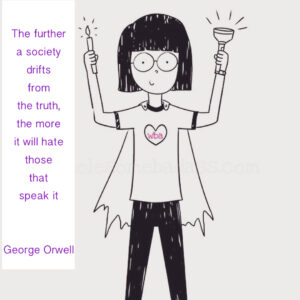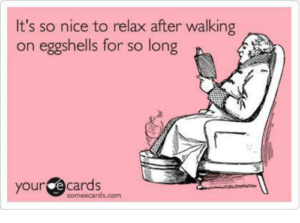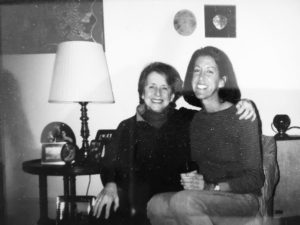Recently, during a hospital stay, I was sedated and vulnerable. At one point, I was physically handled with what felt like completely unnecessary force. I weigh just under 120 pounds and am 5’11″—it’s hard to imagine I presented a legitimate physical threat that justified that kind of response.
When I expressed fear and asked to speak with a superior in hopes of de-escalating the situation, the hospital security guard responded by pointing to his cartoon star badge and tightening his grip. He dismissed me with a toothy laugh, saying he was the boss—making it clear that no other help would be coming.
What followed left me not just afraid, but bruised—black and blue on my hips, shoulders, neck, jaw, and inner thighs. In his incident report, he justified the force by labeling me a “high elopement risk.” Then came the clinical label: paranoid.
I asked the therapist—Is it paranoid if I’m afraid of someone who actually hurt me?
She said no. She said that’s not paranoia. That’s survival. That’s the pattern for survivors of abuse.
I’m not paranoid. But I am deeply impacted by energy—especially from people who seem to need control, and who interpret my questions or directness as threatening. Sometimes, just naming what I see is enough to trigger a power struggle I didn’t mean to start. I’m still trying to understand why that happens.
It seems that, for some people, especially those heavily invested in being seen as in control or above reproach, my presence feels like a challenge. Not because I’m combative—but because I notice things. I ask things. I don’t always smooth things over when something feels off.
And maybe that’s part of the pattern I was shaped by. I’ve come to recognize certain dynamics as familiar. I don’t seek them out on purpose, but I’ve learned to move toward what I know—even if it hurts. It’s a reflex, not a choice.
I don’t think I’m manufacturing chaos by checking in. But I’ve learned that when my curiosity or directness shines light where it’s not welcome, it can trigger others to control or silence me in ways that are confusing and destabilizing. I react—not to create trouble, but to make sense of what’s happening. And, before I even understand what’s unfolding, I’m in the crosshairs. And the thing will grow into something larger—a kind of smear campaign—a need to establish my invailidity and worth, to deflect light away from the thing I asked about.




